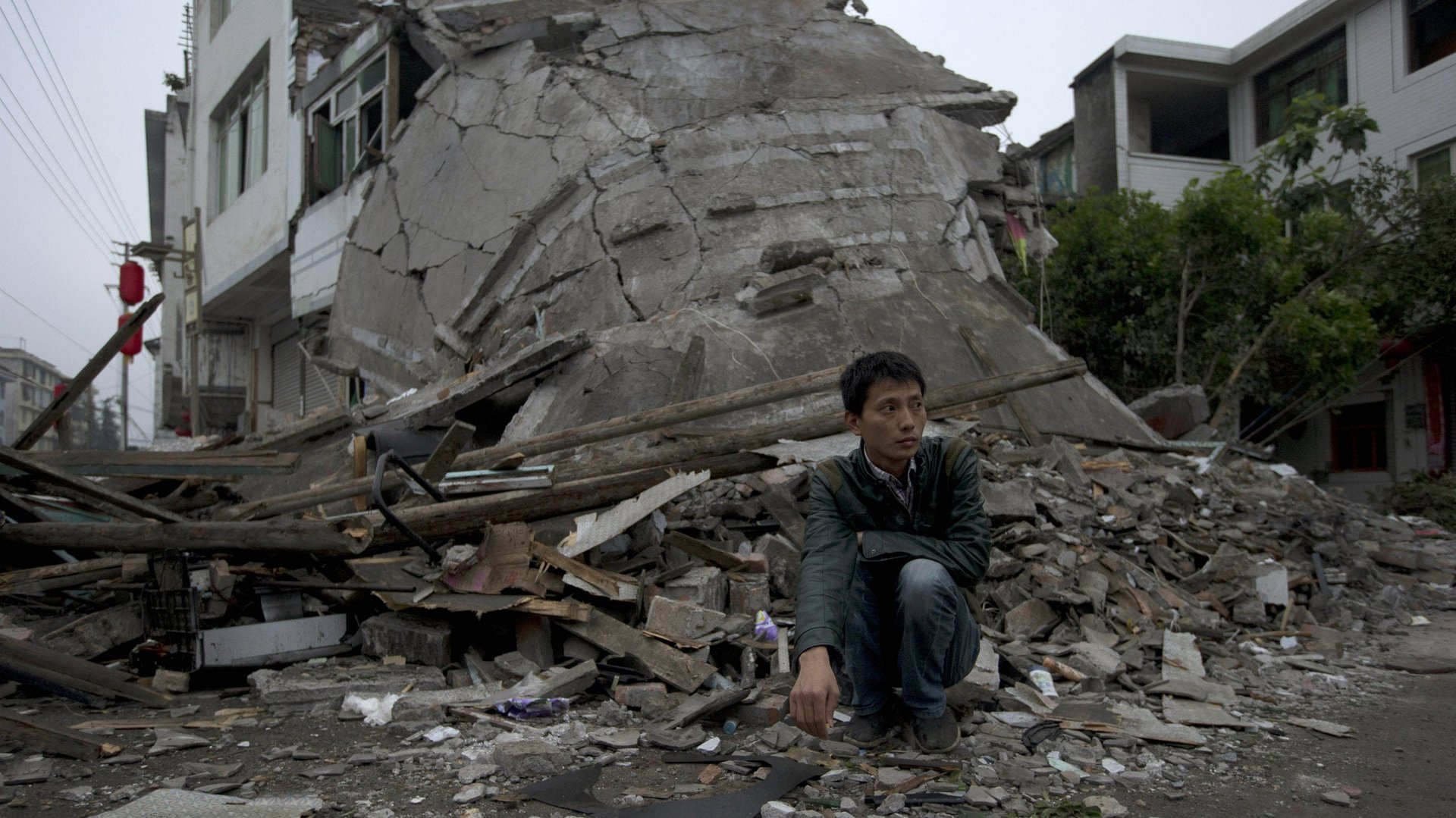Deadly Sichuan earthquake will cause only minor ripples in China’s economy
To the people of China’s south-western Sichuan province, the knowledge that Saturday’s earthquake was less severe than the one they experienced five years ago is little consolation. This is particularly true in Ya’an, nearest the quake’s epicenter, where much of the city and surrounding villages have been flattened and over 180 people have died. Rebuilding will take time, but most analysts expect that the impact on China’s economy will be slight.


To the people of China’s south-western Sichuan province, the knowledge that Saturday’s earthquake was less severe than the one they experienced five years ago is little consolation. This is particularly true in Ya’an, nearest the quake’s epicenter, where much of the city and surrounding villages have been flattened and over 180 people have died. Rebuilding will take time, but most analysts expect that the impact on China’s economy will be slight.
Ding Ningning, from the State Council’s Development Research Center, told China Daily that the regional economy will be affected, “but the earthquake will not greatly hurt China’s overall economy because Ya’an, a third-tier city, is neither a raw material production base nor manufacturing zone.” The earthquake was devastating, but the region it affected was small when compared to the Chinese economy as a whole.
Sichuan is a fast-growing province with a population of around 87 million. According to official figures its GDP was $385 billion in 2012—equivalent to about 5 per cent of China’s economy. The GDP of Ya’an city is just RMB $5.7 billion, making a large national economic impact unlikely. Local economic growth after the much more severe 2008 earthquake, which claimed almost 80,000 lives, took just three months to bounce back.
The country’s economic outlook is hardly forefront in the minds of most Sichuan residents. China’s ministry of civil affairs said on Sunday that 1.5 million people in the province have been affected by the earthquake and the dead are still being counted. Rescue efforts are hampered by mountainous terrain—a truck trying to reach a remote community to assist in the rescue effort fell off a cliff on Saturday, killing two soldiers.
The rebuilding process is likely to suffer similar complications, although some analysts have said that the increased demand for building materials could provide a boost to the construction industry. Alistair Thornton, regional economist at IHS, told the Wall Street Journal that the consultancy is “bullish on Sichuan’s economy,” adding that the province is “the pathway to China’s fastest growing [western] region and [it] will continue to benefit from that. The earthquake is a tragedy, but it’s difficult to see it pushing development off course for long.”
Mr. Thornton is not the only one to see more potential in Sichuan. According to the US Energy Information Administration, the mountains of Sichuan, the deserts of Xinjiang and other regions may hold twice as much shale gas as the entire United States. But amid speculation from geologists that this weakend’s earthquake may have been caused by China’s many hydroelectric dams, aggressive exploitation of those resources could mean more dangerous seismic events in western China in the years to come.